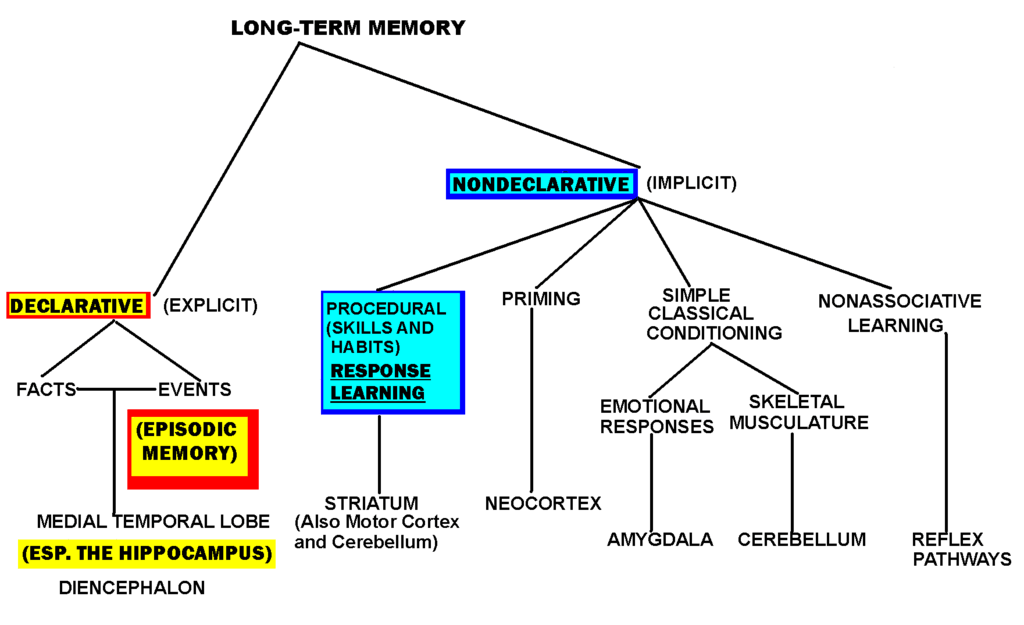The primary distinction between declarative and procedural memory is that declarative memory involves memories of things people intentionally remember and require conscious effort to recall, while procedural memory involves memories of things people do not intentionally remember and do not require conscious effort to recall. Memory can be categorized into different types based on the kind of content, with two main types being long and short-term memory. Long-term memory has a relatively unlimited reserve and can be stored in the brain for an extended period, whereas short-term memory has a brief duration. Additionally, long-term memory is further divided into declarative memory and procedural memory.
Key Takeaways
- Declarative memory is associated with memories people intentionally remember and require conscious effort to recall, while procedural memory is associated with memories people do not intentionally remember and do not require conscious effort to recall.
- Declarative memory is a type of explicit memory, whereas procedural memory is a type of implicit memory.
- Both declarative and procedural memory are types of long-term memory and are controlled by specific parts of the brain.
What is Declarative Memory?
Declarative memory is a type of memory associated with memories of things that people intentionally remember and require conscious effort to recall. It is a type of explicit memory, and the prefrontal cortex and the hippocampus are the brain structures that control declarative memory.
There are two types of declarative memory: episodic memory and semantic memory. Episodic memory contains information based on specific events that have occurred throughout life, often associated with personal history and life events. In contrast, semantic memory contains factual or conceptual information, such as understanding math formulas, knowing the difference between animals, and associating words with their meanings.
What is Procedural Memory?
Procedural memory is a type of memory associated with memories of things that people do not intentionally remember and do not require conscious effort to recall. It is a type of implicit memory, and people use procedural memory for various actions, such as writing with a pen, typing on a keyboard, playing sports, or preparing simple meals.
The cerebellum and limbic system are the brain regions involved in forming and maintaining procedural memory. There are certain disorders or conditions that may impact procedural memory, including Parkinson’s disease, Alzheimer’s disease, traumatic brain injury, and major depressive disorder.
What are the Similarities Between Declarative and Procedural Memory?
Declarative memory and procedural memory are both types of long-term memories. They are controlled by specific parts of the brain, are essential for maintaining a quality lifestyle, and are affected by different disorders.
What is the Difference Between Declarative and Procedural Memory?
Declarative memory is a type of memory associated with memories people intentionally remember and require conscious effort to recall, while procedural memory is a type of memory associated with memories people do not intentionally remember and do not require conscious effort to recall. This is the key difference between declarative memory and procedural memory. Additionally, declarative memory is a type of explicit memory, while procedural memory is a type of implicit memory.
Summary – Declarative vs Procedural Memory
Declarative memory and procedural memory are two different long-term memories. Both have a relatively unlimited reserve and can be kept in the brain for an extended period. Declarative memory is associated with memories that people intentionally remember and require conscious effort to recall, while procedural memory is associated with memories of things that people do not intentionally remember and do not require conscious effort to recall. This summarizes the difference between declarative and procedural memory.
